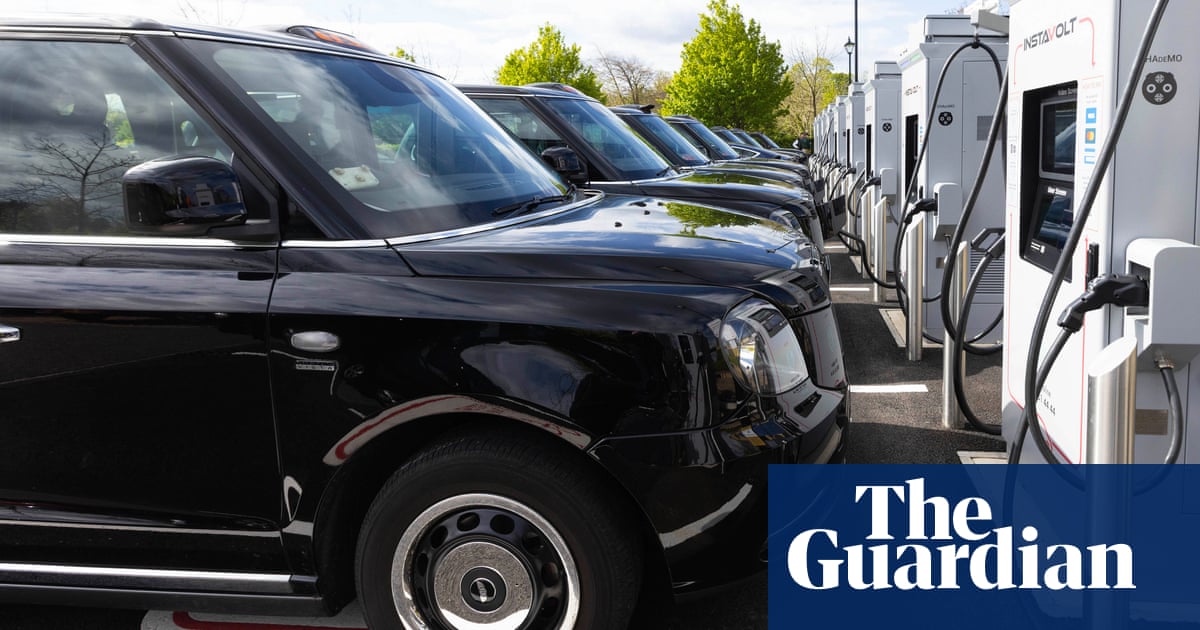UK installs record number of public electric vehicle chargers | Electric, hybrid and low-emission cars


The UK has installed a record number of public electric car chargers this year, as companies race to keep up with the increasing number of battery vehicles on British roads.
Nearly 6,000 new chargers were installed during the first three months of 2024, according to quarterly figures from data company Zapmap published by the Department for Transport. About 1,500 of those were rapid chargers, capable of charging a car in less than an hour.
There were just under 60,000 public chargers installed in the UK by 1 April, a 49% increase compared to a year earlier.
The number of public chargers of all speeds in the UK has doubled since the start of 2022.
Some electric car companies, including global leaders Tesla and China’s BYD, are experiencing falling sales as higher interest rates hit disposable incomes. That has meant that the share of electric models in total car sales has stalled in the UK at 15.5% this year, after previously rapid growth.
One of the most common reasons cited by people who are concerned about shifting to EVs is range anxiety, or the fear that their car will run out of power before they can find a charger. In many parts of the world – and notably in the US, the world’s second largest car market – that concern can be well founded. However, in the UK the problem is being addressed and the number of black spots, at least in areas with high demand, is reducing rapidly.
Quick Guide
Electric vehicle charging speeds
Show
Not all chargers are created equal
More and more people are buying electric cars, and are having to grapple with charging for the first time. However, not all chargers are created equal, and the profusion of units can cause confusion.
Charging speeds are measured by power output in kilowatts (kW), while battery capacity is measured in kilowatt hours (kWh). For example, a Nissan Leaf has 39kWh of battery capacity, while a Tesla Model Y has 60kWh.
Recharge times vary depending on battery size: divide the battery size by the power to get a very rough idea of how many hours it will take to charge. (E.g., a 60kWh battery at a 22kW charger would take about three hours.) The quicker the charge, the more it tends to cost.
Slow: 3kW to 6kW
Common at homes, and on-street chargers. Suitable for charging overnight. Plugging in with a UK three-pin plug to the mains at home will deliver about 2.3kW – although it is not recommended.
Fast: 7kW to 22kW
Found at urban sites like supermarkets and shopping centres. Capable of charging a smaller battery in a few hours.
Rapid: 23kW to 100kW
Motorway service stations and dedicated public charging hubs. 50kW could give an 80% charge in less than an hour.
Ultra-rapid: 100kW and above
Some of the newest and most expensive cars can handle power up to 270kW, adding hundreds of miles of range in 10 minutes.
Ben Nelmes, the chief executive of New AutoMotive, a thinktank focused on electric cars, said improvements were evident in many areas that had previously been poorly served. He said this was partly a result of councils gradually taking advantage of central government grants to install chargers.
“I think there is a coming together of two things,” Nelmes said. “Some of the barriers have been mitigated. And the private sector has woken up to the opportunity.”
More than a million electric cars have been sold in the UK. Only 6% of EV drivers in England surveyed last year by the Electric Vehicle Association said they experience range anxiety either very often or fairly often, while 94% said they had range anxiety occasionally, rarely or never.
after newsletter promotion
The region with the fastest growth in charger numbers per person was north-east England, followed by the south-west.
The situation also improved in Northern Ireland, although it remained by far the worst served part of the UK in terms of charger numbers, with only 29 per 100,000 people.
The best served region has always been London, which has 221 chargers per 100,000 people, as companies chase a wealthier population more likely to own an electric car. Many wealthy neighbourhoods in the capital do not have off-street parking, meaning EV buyers are reliant on public charging.
Source link




